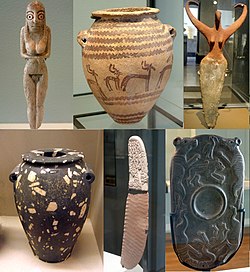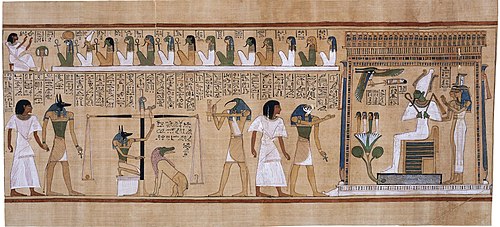Cultural Influence of Ancient Egypt
Explore how ancient Egypt’s rich cultural legacy continues to inspire modern artistic and architectural endeavors worldwide.
From monumental architecture to intricate art, the legacy of ancient Egypt is a wellspring of inspiration in diverse creative fields.
- Iconic Architecture
- Influential Art Forms
- Enduring Literary Contributions
- Scientific Advancements
Art and Literature
The artistic contributions of ancient Egypt are richly documented:
- Hieroglyphics: An iconic form of writing that served both practical administrative purposes and literary expression.
- The Book of the Dead: A compilation of funerary texts that illustrate beliefs about the afterlife and moral codes.
- Artworks like statues, paintings, and reliefs often conveyed religious narratives and social hierarchies, emphasizing the relationship between the divine and human affairs.
Scientific Advancements in the Legacy of Egypt
Medicine and Health Practices
Egyptians had extensive knowledge of medicine that combined empirical observation with spiritual beliefs.
- Medical papyri reveal sophisticated understanding of anatomy, surgical techniques, and herbal remedies used to treat ailments.
- The methods documented influenced medical practices in surrounding civilizations.
- Harmony in health practices, such as hygiene and diet, promoted well-being, and these practices resonate with modern preventive health measures.
Mathematics and Astronomy
Egypt's scientific contributions include fundamental advancements in mathematics and astronomy:
- Mathematics was essential for architectural design and land measurement, impacting the construction of structures and agricultural planning.
- Astronomical knowledge was vital for creating calendars based on agricultural cycles, facilitating efficient farming.
- The alignment of pyramids and temples illustrates the ancient Egyptians' understanding of celestial movements.
The Ongoing Legacy of Egypt
Archaeological Discoveries
Ongoing archaeological efforts yield significant findings that continue to expand knowledge of the daily life, governance, and rituals of ancient Egyptians.
- Recent excavations at key sites like Luxor and the Valley of the Kings reveal artifacts that provide context regarding Egyptian culture and practices.
- Discoveries of mummified remains and burial goods help historians comprehend social structures and religious beliefs.
- Advanced technologies are employed to uncover ancient sites, contributing to a dynamic understanding of Egyptian history.
Influence on Modern Culture
Egyptian themes have permeated modern arts and culture, inspiring various creative expressions:
- Films, literature, and art often evoke Egyptian motifs, reinforcing its allure and cultural significance.
- Contemporary architecture occasionally draws on ancient Egyptian styles, reflecting a lasting admiration for its grandeur.
- Fashion and design incorporate Egyptian influences, showcasing its aesthetic and historical journey into the present.
Conclusion
The legacy of Egypt remains a testament to one of the most extraordinary civilizations in human history. Its ancient practices in architecture, governance, medical advancements, and cultural practices continue to influence modern life. Understanding the richness of Egyptian history not only honors its past but also enriches our appreciation of global heritage.
FAQ
What is the legacy of Egypt?
The legacy of Egypt encompasses the historical, cultural, social, and scientific contributions of ancient Egyptian civilization that continue to influence the modern world.
How does the legacy of Egypt work?
The legacy of Egypt works through a combination of its architectural achievements, writings, religious practices, and cultural symbols that shape modern interpretations of humanity's past.
Is the legacy of Egypt safe/reliable?
The study of Egypt's legacy is conducted through archaeology and historical research methods that aim to reconstruct accurate interpretations of its past, relying on verified evidence and scholarly analysis.
What are the benefits of understanding the legacy of Egypt?
Understanding the legacy of Egypt provides insights into human progress, cultural developments, and the foundations of Western society, enriching knowledge in fields like art, literature, and governance.
How to get started with learning about the legacy of Egypt?
To get started, one can explore various academic resources, visit museums showcasing Egyptian artifacts, read historical texts, and engage with documentaries focusing on ancient Egypt.






